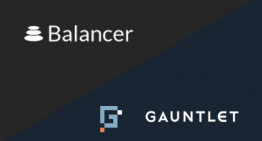The Sushiswap case has shaken the whole crypto sphere when dozens of traders have watched how their beloved Sushi tokens lost 88%. This event was triggered by the news that “Head chef of SushiSwap” sold Sushi in the developers’ fund of the project. On the 5th September the infamous leader of the offspring from Uniswap has got a hand on the $27 million assets as analyst Adam Cochran previously warned.
The Sushiswap has been discredited, and explanation from “the head of Sushi” only sparked outrage. The grim reality of DeFi came to life. There’s not only a story about Sushiswap since it has rivaled liquidity and drawn about two-thirds of assets locked previously in Uniswap. Hence, the contagious effect was visible not only in DeFi. Bitcoin has widened its loss by 22% in the first seven days of September, most altcoins except Tron turned red.

In the trustless world of decentralized finance there’s still a need for the protection against rug-pulls. One of the solutions could be platforms when new issuance of tokens would be guarded against the voluntary steps of their creators. The demand for such platforms will be definitively on the rise. One of the early birds in this context is LID Protocol that provides the relevant solution by making it impossible for rug pull scams to occur by locking the liquidity of tokens that are pre-launched on their platform. This means that project owners cannot pull the liquidity from their project in a way that leaves investors out of their money, or tokens.
One of Life-Belts for DeFi
It seems that LID could be one of the decisions to fix the post-Sushi situation in DeFi. LID seeks to build upon the current staking solution to make it fitter for purpose and to foster a better community on their platform which is achieved by extending the solution to DAO voting and promotion. As a result of this, stakers involved in the LID community are effectively incentivized to partake in actions which are beneficial to the community at large.
The LID decentralised organisation (DAO) earns money by taking a 5% fee from all LID certified pre-sales and LID certified staking decentralized applications (Dapps). There is also a transfer tax that has been implemented on the LID token which grants the LID DAO 0.10% of the value of all transactions and stakeholders with 1.90% of the value.
The Proof-of-Ecosystem
DeFi starts substituting the outdated legacy financial system. The world of finance becomes more blockchain-oriented. On this way, investors may face bumps in the roads such as Sushi tokens’ negative impact on the image of the DeFi and cryptocurrencies sector as a whole. The need for a smoother transition is actual. There’s no problem with DeFi itself. The Sushi tokens have got a listing on centralized cryptocurrencies exchanges and it didn’t provide them with more stability. Indeed, the competition between centralized and decentralized trading spots is on the rise, and the difference between them is becoming blurred.
We may see that there is a case when the exchange may be fully regulated as for example Nominex and at the same time to adhere to the core principles of the decentralization.
Anyway, Uniswap is a very promising decentralized exchange in case it copes with the problem the Sushi case highlighted. Above mentioned LID Protocol arrives in time, and what’s worth mentioning is that LID Protocol has already proven its validity. Established by Carlsbad Sunshine, a consultant for a number of DeFi projects, on 12th of July 2020 LID Protocol has achieved roughly $195,000 in funding, and has successfully arranged three presales: MYX (1,600 ETH) DETS (4,000 ETH) SWFL (3,320 ETH). Three launches on the LID platform have earned the organization $100,000 per week in revenue. It successfully launched LID’s technology on LID’s native token, raising 2,100 ETH. After two days LID token launch the project released staking Dapp.
Conclusion
What’s a key ingredient for any project in DeFi? One can prove that the crypto sphere considers one’s project as promising when we may witness the formation of the ecosystem consisting of various independent projects wanting to collaborate with a new crypto startup. And this is precisely the case of LID Protocol. Its ecosystem evolves rapidly and has given birth to LID Dao developed in partnership with dOrg.tech.
The project Askobar is currently working on a product called Askolend in collaboration with LID Protocol which will provide multi-tier lending in conjunction with LID’s liquidity locking technology. The price volatility could have a massive impact on Askobar’s product and the product’s integration with Uniswap but due to the hard guarantees provided by LID’s liquidity locking AskoLend may successfully list all tokens on LID Protocol.
Additionally, LID Protocol will be launching on Tron within the next 1-2 months with JustSwap. Finally, Biki is working on a new project with LID Protocol.










Leave A Reply